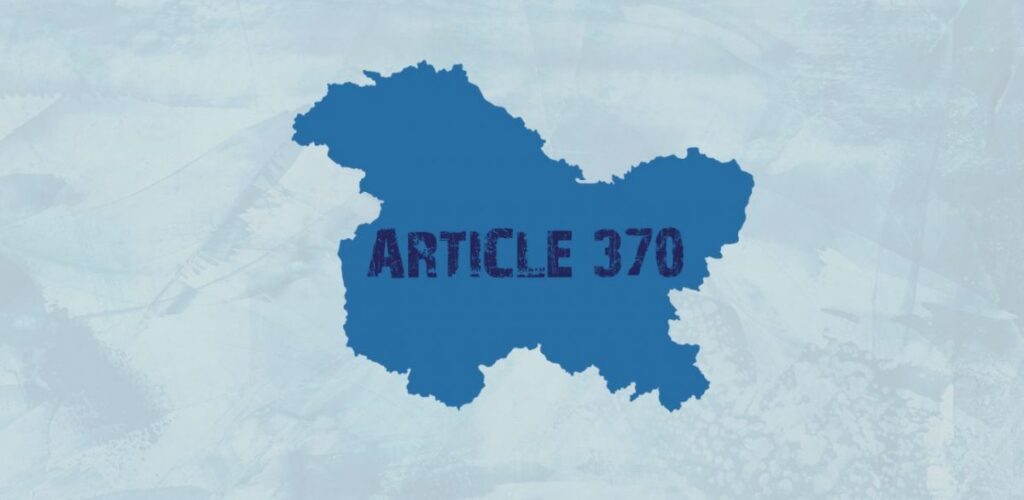Unravelling Article 370: The Story of Jammu and Kashmir's Special Status
By Team Anushka & Yash Vardhan
“”The law is reason, free from passion.”
― Aristotle“

Introduction
Article 370 of the Indian Structure has been a subject of wrangle around, exchange, and debate since its starting. It blessings exceptional autonomous status to the district of Jammu and Kashmir, adjusting its relationship with the Indian Union. Let’s burrow into the complexities of Article 370, its history, recommendations, and the afterward enhancements enveloping it.
Chronicled Background
Article 370 was joined into the Indian Structure in 1949, taking after exchanges between the pioneers of Jammu and Kashmir and the Government of India. It was arranging to supply brief courses of action for the state’s freedom, pending a final assurance of its political status.
Special Provisions
Under Article 370, Jammu and Kashmir had the control to have its possess structure, hail, and independence over inner organization, whereas the Indian Structure connected to it as it were mostly. This course of activity pointed to respect the unmistakable identity and wants of the region’s individuals.
Evolution and Amendments
Over the a long time, a few Presidential Orders were issued to modify the courses of action of Article 370, ceaselessly dissolving its autonomy. Be that as it may, its centre essence remained intaglio until Prominent 5, 2019, when the Government of India revoked its exceptional status through a presidential arrange.
Revocation of Article 370
The choice to deny Article 370 was met with mixed reactions. Advocates fought that it would lead to the region’s integration with the rest of India and development progression, though faultfinders communicated concerns around its influence on the region’s character, autonomy, and relationship with the Indian Union.
Legitimate and Political Repercussions
The cancel of Article 370 begun true blue challenges and political alter. It driven to the bifurcation of the state into two union domains: Jammu and Kashmir, and Ladakh. Moreover, it raised questions around the sacrosanct authenticity of the move and its recommendations for the region’s future.
Current Scenario
Within the repercussions of the revoke, the district seen changes in organization, organization, and security courses of activity. Endeavour’s have been made to reestablish commonality, development progression, and bolt in with the people of Jammu and Kashmir to address their desires and grievances.
Worldwide Measurement
The renouncement of Article 370 besides pulled in around the world thought, with a few countries communicating concerns around human rights infringement and the circumstance inside the district. Be that as it may, India has kept up that the move is an interior matter and essential for the region’s development and steadiness.
Conclusion
Article 370 has been a critical and irritable point of India’s ensured framework, shaping the relationship between the Union and the district of Jammu and Kashmir. Its invalidation marks a paramount move with far-reaching proposals for the region’s future, organization, and identity, raising imperative legal, political, and social questions that continue to reverberate both locally and all around.
About Author
Anushka Anand and Yash Vardhan Singh jointly wrote this blog as co-authors who are law students at Amity University, Madhya Pradesh.